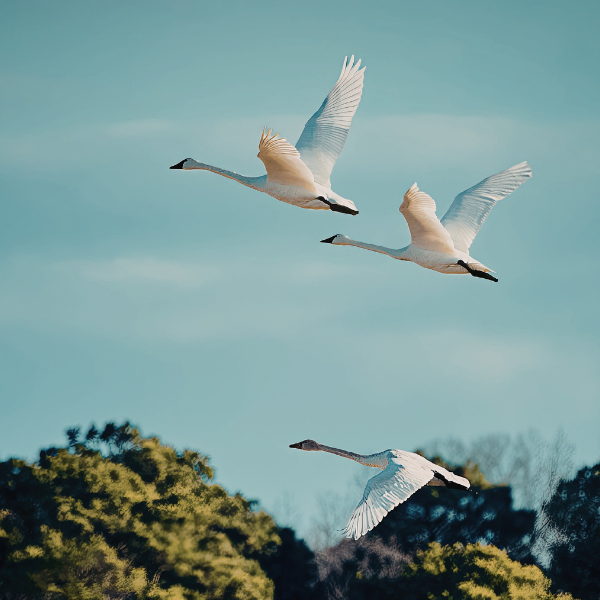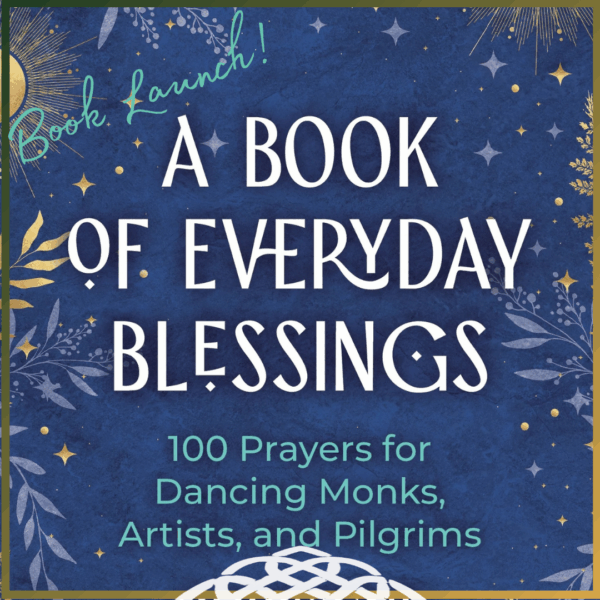Neither of my parents were religious people, but they did instill in me an aesthetic appreciation through regular visits to museums and cathedrals and listening to great classical music. My aesthetic sense was cultivated long before my spiritual sense, of course, now I realize that my spirituality was being shaped through my love of beauty. So when I did make a formal commitment to a faith tradition, the two things that captivated me were the aesthetic and justice dimensions. While working at a Catholic high school in Sacramento as a religion teacher and campus minister in 1994, part of my job was to create a new retreat program for the students and faculty. I knew intuitively that the arts had to be a part of this process.
I have never had any formal art training. I took art history in college and had taken workshops in different mediums, but didn’t consider myself a professional artist. Yet I knew the delight and pleasure of playing with paint and words and images and movement, I knew the power of song and story. So I would integrate different art forms into the retreat, moving from one modality to another, deepening the experience through each form of expression. The high school students loved it, the faculty were harder to invite into the process.
I kept developing this way of working in spiritual formation, putting the arts and creative process at the heart of the journey as a way of moving people away from a purely logical and rational faith experience. I knew that engaging in the art-making process could be profoundly healing and integrative. When I moved to Berkeley in 1998 for my PhD program in Christian spirituality, I discovered that there was a whole field of study, the expressive arts, that used the arts for this purpose. The Bay area is a wonderful place to find expressive arts programs and classes. I stumbled into this field and was in awe to discover that there was a whole systematic approach to engaging the arts in this way.
The expressive arts focuses on process over product. In this way, anyone can enter into art-making, because it is the creative process itself that is the journey of discovery without worry about what the final product will look like. Embracing the process and noticing what stirs within you through it — resistance, insight, joy, sadness — all of it is food for self-growth and growth in relationship to the holy presence. The expressive arts provides a safe container to explore all of what rises up within us in ways that are intuitive and grounded in symbolic language. Image is the indigenous language of the soul.
The expressive arts are also multi-modal, which means that they engage multiple art forms to deepen the creative process. There is a recognition that moving from say collage to writing to movement deepens the experience and insight in ways that staying with a single art form or just intellectual processing cannot.
The expressive arts are an incredibly freeing way to approach creativity and art-making. We can release the pressure to create something beautiful, and turn our attention to creating authentically, from the core of who we are and in response to how God is moving within us. Of course, often people then discover the great beauty that is in their work. We discover a God who is dynamic and flowing through our veins with energy and vitality. A God who invites us into the pleasures of creating, the delights of play, the healing of coming into relationship with the whole spectrum of feelings within us that long to be expressed in some form.
Probably most important for me, is that using the arts as a way of praying and exploring Spirit’s movements within me also respects the grand and glorious mystery of God. In our theologies, we try and parse out creed and doctrine through rational analysis and thought. This is an important task to be sure to build a shared tradition, but one that I believe is in service to the experience of Holy Mystery that comes first. An experience that is often more appropriately explored through dreams, intuition, the arts, and listening to the wisdom of the body and emotions.
What would it mean for you to engage yourself in the process of creating and letting go of the product? Do you take pleasure in the journey of exploration that comes with art-making? How do your rational and linear thought processes get in the way of spontaneous expression and experience? How might you paint, move, sing, or write today just for the pure joy of it?


